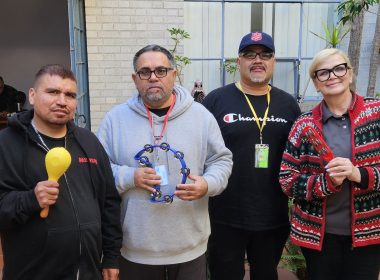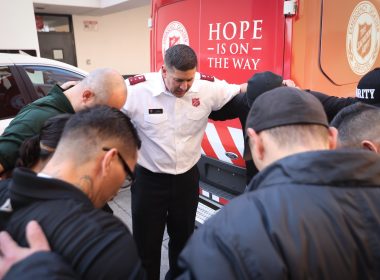by Lawrence Shiroma, Major –
You keep track of all my sorrows. You have collected all my tears in your bottle (Psalm 56:8).
For years we were told my grandfather walked away from his family in Hawaii, leaving my immigrant grandmother from Okinawa to raise four young children on her own. He was alluded to as a person without a sense of responsibility.
Thanks to my nieces, however—Stephanie Bohannan and Suzanne Billington—we have been able to learn a bit more about the grandfather I never met.
In the Kalaupapa Cemetery Directory lies a tombstone of a Keichi Yasuda, who died in 1936 at the age of 49. Just what is the significance of a man who lived and died in Kalaupapa, Molokai in the 1930s? In those days, boys, girls, men and women were shipped off to Kalaupapa for one reason and one reason only. They were guilty of being diagnosed with leprosy.
What were the thoughts of these outcasts, abruptly taken from their families and sentenced to live the rest of their lives ostracized from society, with never a hope to see their loved ones again?
Leprosy is one of man’s oldest curses. We read in Numbers 12:10 that sometime around 1250 B.C., Miriam stood, her skin as white as snow from leprosy. The only known remedy for leprosy was to segregate the leper from mainstream society. In medieval Europe, lepers were ordered to wear bells around their necks to warn people of their approach. By 1000 A.D., monks had constructed more than two thousand leper hospitals throughout Europe.
Since 1865, over 8,000 people have been exiled to the leper settlement in Kalaupapa. Writer Jack London wrote about his visit to the island colony in 1908, saying that it appeared “the pit of hell, the most cursed place on earth.” It was not until astronaut Neil Armstrong’s walk on the moon in 1969 that the law exiling lepers to Kalaupapa was rescinded.
Leprosy, however, is not the oldest of man’s curses. We read in Romans 6:23, the wages of sin is death. Death is our curse. We accept it as being a part of the cycle of life, but were it not for the disobedience of our first parents at the dawn of history, we would be living forever.
Omniscience is an attribute of a perfect being; therefore, God knows who you were even before you were born. Jeremiah 1:5 states, I knew you before I formed you in your mother’s womb. Did God know I would accept Christ as my Savior and become a Salvation Army officer? Did God know my grandfather would be sentenced to spend his life in a leper settlement? In today’s skeptical society, pain and suffering are evidence that God does not exist, for surely if God did exist, he would have prevented my grandfather from contracting leprosy; surely he would have put a stop to human suffering all over the world.
Are trials and tribulations evidence for the non-existence of a loving God, or are they tragically, the consequences of original sin and living in a fallen world? Weeping may endure for a night, David wrote in Psalm 30:5. Pain and sorrow will be with us all the days of our lives, but joy comes in the morning.
Whether we live in Kalaupapa, Molokai or Fairbanks, Alaska, Jesus Christ unequivocally declares in Revelation 22:16, I am the bright and morning star. Is there any other?









